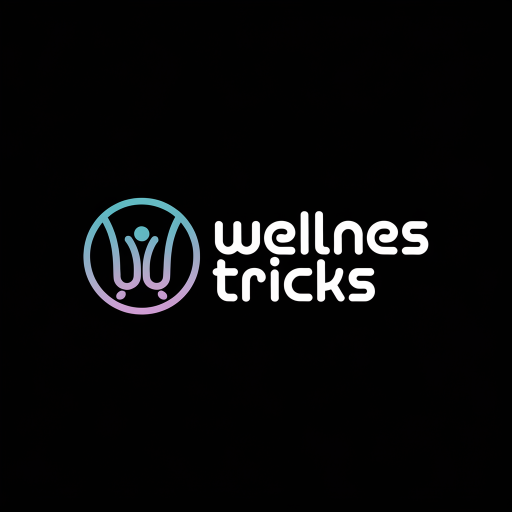How to Balance Hormones Naturally Without Meds
Navigating hormonal imbalances can be challenging, but there are natural ways to restore balance without relying on medications. By focusing on your diet, exercise, stress management, and sleep, you can create a holistic approach tailored to your needs. It’s essential to understand how each aspect interacts with your hormones. Curious about which dietary changes and lifestyle habits can make the most significant impact on your hormonal health?
Key Takeaways
- Incorporate whole foods like fruits, vegetables, and lean proteins to stabilize blood sugar and support hormonal health.
- Engage in regular physical activity, combining cardio and strength training to regulate hormone levels and boost mood.
- Practice mindfulness techniques, such as meditation and deep breathing, to reduce stress and lower cortisol levels.
- Ensure adequate hydration and consume fiber-rich foods to aid digestion and promote hormone regulation.
- Prioritize quality sleep of 7-9 hours nightly to support hormone production and overall balance.
Understanding Hormonal Imbalances
How do you know if you’re experiencing a hormonal imbalance? You might notice changes in mood, energy levels, or your menstrual cycle. These symptoms can signal that your hormones are out of sync. Natural hormone balancing focuses on understanding your body’s unique needs. Instead of simply masking symptoms, it encourages you to explore lifestyle factors like stress management, sleep quality, and physical activity. By tuning into your body’s signals and seeking evidence-based approaches, you can work toward restoring balance. Additionally, recognizing the signs of hormonal imbalance can help you identify specific areas to address in your journey. Listening to your body’s rhythms is key in navigating this journey, empowering you to take control of your hormonal health naturally.
Dietary Changes for Hormonal Health
A balanced diet plays a crucial role in maintaining hormonal health.
Focus on incorporating whole foods like fruits, vegetables, lean proteins, and healthy fats.
These nutrient-dense options can help stabilize blood sugar levels and support hormone production.
Incorporate omega-3 fatty acids from sources like fish and flaxseed to reduce inflammation.
Don’t forget fiber-rich foods, which aid digestion and hormone regulation.
Limit processed foods and refined sugars, as they can disrupt hormonal balance.
Staying hydrated with water also supports overall health. Additionally, including nutrient-rich foods in your meals can further enhance hormonal balance and overall well-being.
The Role of Exercise in Hormone Balance
Incorporating regular exercise into your routine complements dietary changes and significantly impacts hormone balance.
Engaging in physical activity helps regulate insulin, cortisol, and estrogen levels, promoting overall well-being.
Aim for a mix of cardio, strength training, and flexibility exercises to enhance your hormonal health.
Consistent movement boosts endorphins, which can improve mood and reduce symptoms of hormonal imbalance.
Listen to your body and choose activities you enjoy—whether it’s yoga, dancing, or hiking.
Remember, it’s not just about intensity; consistency matters. Additionally, incorporating holistic practices such as mindfulness and stress reduction techniques can further support your hormone balance.
Stress Management Techniques
What if managing stress could be the key to balancing your hormones?
Incorporating mindfulness practices like meditation and deep breathing can significantly reduce cortisol levels, helping your body regain hormonal balance. Engaging in regular physical activity not only boosts mood but also alleviates stress. Consider journaling to process emotions and identify stressors, fostering self-awareness. Building strong social connections provides a support network, crucial for emotional resilience. Finally, prioritize sleep—quality rest is essential for hormone regulation. Research shows that just 10 minutes of daily meditation can lead to improved focus and reduced stress levels, further aiding in hormonal balance.
Herbal Remedies and Supplements
When it comes to balancing your hormones, incorporating herbal remedies and nutritional supplements can be a game-changer.
You’ll want to explore essential herbs that support hormonal health and key supplements that fill nutritional gaps.
Just remember to pay attention to dosage and safety guidelines to ensure you’re making the best choices for your well-being. Additionally, understanding the importance of lifestyle choices can significantly enhance the effectiveness of these natural remedies.
Essential Herbs for Balance
Herbs have long been revered for their ability to support hormonal balance, offering a natural way to enhance your well-being.
Incorporating specific herbs into your routine can help you feel more balanced and energized.
Here are three essential herbs to consider:
-
Ashwagandha: Known for its adaptogenic properties, it helps reduce stress and cortisol levels.
-
Maca Root: This Peruvian herb supports energy levels and can enhance libido, making it great for hormonal health.
-
Chaste Tree Berry (Vitex): Often used to alleviate PMS symptoms, it can help regulate menstrual cycles.
Explore these options to find what works best for you!
Key Nutritional Supplements
Nutritional supplements can play a crucial role in achieving hormonal balance and overall wellness.
Omega-3 fatty acids, for instance, support hormonal health by reducing inflammation and promoting brain function.
Vitamin D is essential for regulating mood and supporting the endocrine system.
Magnesium can alleviate symptoms of PMS and aid in stress reduction.
Additionally, B vitamins help with energy production and hormone synthesis.
Incorporating these key supplements into your daily routine can enhance your body’s natural ability to maintain hormonal equilibrium.
Always consider consulting with a healthcare professional to personalize your approach and ensure these supplements align with your unique health needs.
Dosage and Safety Guidelines
How can you ensure that you’re using herbal remedies and supplements safely?
Following dosage and safety guidelines is essential for your well-being.
Here are three tips to help you:
-
Consult a Professional: Always talk to a healthcare provider before starting any new supplement, especially if you’re on medication or have health conditions.
-
Start Low and Go Slow: Begin with the lowest effective dose and gradually increase, monitoring your body’s response.
-
Research Quality Products: Choose supplements from reputable brands that undergo third-party testing for purity and potency.
Taking these steps can help you balance your hormones safely and effectively.
Importance of Sleep and Rest
Restfulness is fundamental to achieving hormonal balance, as quality sleep directly impacts your body’s ability to regulate essential hormones.
When you prioritize sleep, you support the production of hormones like cortisol and melatonin, which play crucial roles in stress management and sleep cycles.
Lack of sleep can lead to imbalances, affecting mood, weight, and energy levels.
Aim for 7-9 hours of restorative sleep each night, and establish a calming bedtime routine.
Listen to your body’s cues, and create a sleep-friendly environment. Additionally, incorporating effective practices into your evening routine can further enhance your sleep quality and support hormonal health.

